
by Chris Limantour | Apr 22, 2024 | Mercedes Repair
If you are experiencing a strange oil leak under your Mercedes or your transmission fluid is running short, you might be dealing with an oil seal leak. Let’s talk about a few simple ways to detect a leak in your Mercedes transmission oil seal and how to preserve your vehicle with proper maintenance. However, before going ahead with the details, let us cover the fundamentals.
What Purpose Do Transmission Oil Seals Serve?
Transmission oil seals are rubber or metal seals that stop transmission fluid from leaking out of the transmission casing. Their role is to keep the level of fluids intact and to facilitate the smooth working of the transmission parts. Once the seals get broken, the transmission fluid leaks out which consequently can damage the transmission. Before you can fix this problem, you must first identify the cause of the leak.
How To Identify Oil Seal Leaks In The Transmission System
- Fluid Leaks: The most visible symptom of transmission oil seal leakage is fluid leaking under your car. Transmission fluid is usually red or brown in color and possesses a distinct odor. If you come across a puddle near the transmission zone under your car, then it’s most likely a leak in your transmission oil seal. Note that transmission fluid leaks may also come from other areas of the transmission, so to prevent any further damage it is necessary to locate the source of the leak before taking any action.
- Low Fluid Levels: If the Mercedes transmission oil seal is leaking, you might see a drop in the level of transmission oil. Make sure you check your transmission oil regularly and supplement the fluid if the need arises. Low levels of transmission fluids may cause the transmission to be harder when shifting or lead to transmission component damage. If your transmission fluid reservoir needs to be filled up all the time, then you have a leak and it should be inspected.
- Burning Smell: A third sign of a transmission oil seal leak is a burning smell that may emanate from either your car’s engine or the transmission area. The smell of burning comes from the transmission fluid that has leaked onto burning-hot engine parts or exhaust systems. In the event of a burning smell in your Mercedes, you should find out the source and fix the leaks as soon as possible.
- Transmission Performance Issues: Pay special attention to your transmission’s performance. Watch out for sounds that you have never heard before such as whining, grinding, or clunking. They are mostly loud when shifting gears. A squeaking or grinding noise could possibly mean a broken transmission oil seal, which results in leakage of oil and consequently, creates rough gear shifting. Similarly, if your transmission feels laggy, unresponsive, or rough shifting, you should get a good mechanic. They can detect the cause of the problem and suggest the proper repairs so your Mercedes can function perfectly.
How To Address Oil Seal Problems In Your Transmission System
If you think the oil seal in your Mercedes transmission has been compromised, the best thing to do is to take the car to a repair shop. Your mechanic will then find the place where the leak is coming from and fix it by placing a new seal. Before the seal replacement, it is a good idea to flush the old transmission fluid from the system so as to remove dirt that may have entered due to the leak. After that, you can then add new fluid to the required level. Make sure the task is carried out by a certified mechanic.

Call JCL Automotive For Your Mercedes Repairs
At JCL Automotive, we are proud to be number one in the repair of Mercedes and other European cars. We have a workshop that is well-stocked to handle any Mercedes problem you may have.
Whether you suspect an oil leak or encounter any other transmission problems we have skilled technicians who are ready to assist. As a local company serving drivers in the Hellertown, PA area, we are dedicated to providing first-class customer service and getting you back on the road safely. No need for second thoughts, just call us today and you’ll see how efficient our services are.

by Chris Limantour | Apr 5, 2024 | Mercedes Repair
Are you feeling hot in your Mercedes despite cranking up the AC? It could be a sign that something is wrong with your car’s evaporator temperature sensor. This sensor works like a small thermometer to keep an eye on how cold the air is as it passes through your car’s air conditioning system. It tells your Mercedes computer if it needs to cool things down more or ease up to keep the temperature inside your car just right. So, it’s basically helping to make sure you stay comfortable by not letting it get too cold or too warm inside your Mercedes. If this component fails, you’re going to feel the difference.
Factors That Make Evaporator Sensors Fail
- Contamination: Since the evaporator sensor is located inside the air conditioning system, it is exposed to all kinds of dust and tiny bits of contaminants floating around. When this sensor becomes very dirty, it will not be able to tell the correct temperature and this might make your AC not work as you want it to.
- Leaks: Your AC system has a special kind of fluid called refrigerant that helps it cool down the air. If there’s a leak and the fluid becomes too low, the part of the AC that is near the sensor can turn into a block of ice. This freezing can mess up the sensor or even damage it. Also, if the leaky fluid gets on the sensor, it can make it corroded and rusty over time.
- Wiring Problems: Just like your lights at home need good wiring to work, the sensor needs to be well-connected to do its job. If the wires are bad or there’s some corrosion, the sensor might get or send the wrong messages, giving you terrible temperature readings or it might even stop working altogether.
How To Deal With Evaporator Sensor Failure
- Identify the Problem: The first sign of an evaporator temperature sensor failure might be your car’s air conditioning (AC) not cooling properly or fluctuating temperatures. You might also notice that the AC turns off unexpectedly. These symptoms suggest it’s time to check the sensor.
- Diagnosis: If you think something is wrong with the part of your Mercedes that tells the air conditioning how cold to get (that’s the evaporator temperature sensor), then a mechanic may need to do a diagnostic test. They will connect your Mercedes to a computer that can read the condition of the electronic systems in your car and tell (using an error code) if there are any messages that confirms there’s something wrong with the A/C or sensor.
- Inspection: After the computer checks to determine what the problem is, the next step is for your trained mechanic to take a peek inside your car to find the sensor. The evaporator temperature sensor is usually found near the evaporator core inside the dashboard of your Mercedes. During this inspection, your mechanic is looking to see if they’ll find damaged, unplugged, or old looking parts.
- Replacement: If they find out that the sensor is not working as it should, then it’s time to take out the old sensor and replace it with a new one. This task can be a bit of a puzzle because the sensor is in a hard-to-reach spot. That’s why it’s a good idea to let someone who knows Mercedes cars well do this part.
- Testing: With the new sensor in, the mechanic will turn on the AC to check if it’s keeping your Mercedes cool as it should and not acting up anymore.
- Maintenance: To avoid this kind of trouble in the future, it’s important to take good care of your Mercedes’s air conditioning. This means doing things like cleaning out the filters and getting them checked regularly according to the intervals recommended by your mechanic or your car’s manual. This helps to catch any problems early so your car’s AC keeps you cool without any surprises.

Let JCL Automotive Be Your Go-To Mercedes Repair Shop
At JCL Automotive, we’re good at fixing and taking care of Mercedes cars. Our team works hard to make sure your car is well looked after. We have our garage located to serve Mercedes owners in Hellertown, PA, and the surrounding areas with any air conditioning problems, including those tricky evaporator sensor failures. Don’t let AC issues keep you from enjoying your drive. Book an appointment with us now.

by Chris Limantour | Feb 14, 2024 | Mercedes Repair
Do you suspect a breach in the electrical system of your Mercedes? Maybe it’s time to check your car’s fuses. Aluminum fuses in a Mercedes electrical system are like the safety valves in your home’s electrical outlets. Just as those safety mechanisms prevent too much electricity from flowing into your appliances and causing damage, aluminum fuses protect your car’s electrical components. They’re made from aluminum because it’s an excellent conductor of electricity, which means it allows electrical current to flow through easily and efficiently, but blocks off excess of it.
What Makes Aluminum Fuse Fail?
Corrosion
Aluminum fuses are kind of like tiny knights guarding the castle of your car’s electrical system. They’ve got this cool armor – a protective layer – that usually keeps them safe from all the harms out there like moisture, road salt, and even some of those harsh chemicals floating around in your car.
When that protective layer gets damaged, corrosion sneaks in like a thief in the night, starting to mess with the fuse and its ability to keep the electricity flowing smoothly. This whole corrosion incident doesn’t happen overnight; it’s more like a slow process. But even at that pace, it can lead to some seriously annoying electrical problems or even leave you in the lurch with a full-on system ghosting.
Overloading
Every fuse is built to handle only so much and when you exceed that capacity, expect a break. Overloading your car’s aluminum fuse is like giving one tiny thread the job of lifting a bowling ball. When your Mercedes’ electrical demands increase, the poor little fuse gets overwhelmed. The inside of the fuse starts getting hot, really hot, because it’s trying to fight off all that extra electricity coming its way.
Environmental Factors
Extreme temperatures, be it the scorching heat of summer or the biting cold of winter, can push your fuses beyond their limits, leading to failures. This sensitivity to temperature changes makes fuses somewhat like the divas of the car component world; they perform best under just the right conditions.
In the heat, materials expand, including the metal in fuses, potentially altering their electrical resistance or even causing physical distortions that lead to breaks in the circuit. Conversely, extreme cold can make materials brittle and more susceptible to damage from vibrations or sudden impacts. Just as we might layer up or strip down with the changing seasons to stay comfortable, fuses too are affected by their environment, albeit with less ability to adapt. Instead of changing their “clothes,” they rely on us to monitor their condition and protect them from these environmental stresses.
You Might Need a Hand with Those Fussy Fuses
Fuses might be small, but their issues can lead to big headaches. If the thought of diving into your car’s electrical system feels like trying to solve a Rubik’s cube blindfolded, it might be time to tag in the pros.
Finding a mechanic who really gets Mercedes vehicles can make all the difference. They’ve got the skills to spot what’s off and fix it without breaking a sweat. Going pro means getting a thorough check-up, fixing what’s wrong, and keeping your ride running smoothly and safely. It’s also a great way to make sure your beloved car stays in good shape for the long haul. So, if fuses are causing you fuss, let a qualified mechanic take the wheel!
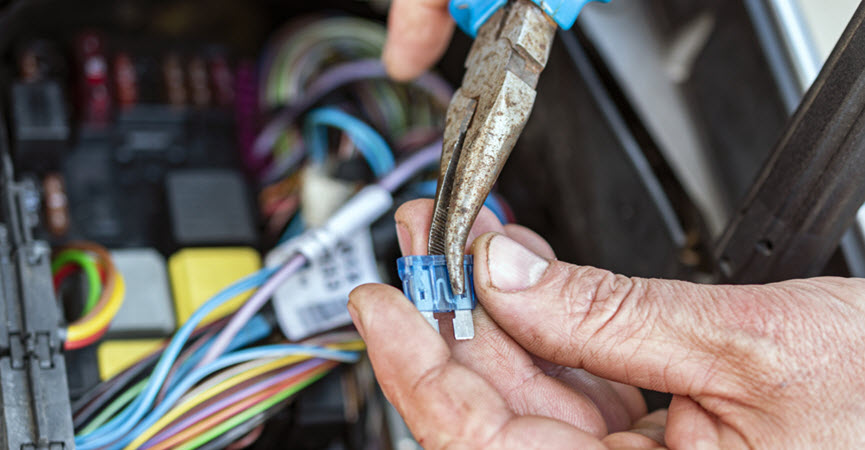
Call Our Mechanics For Quality Mercedes Repairs
If you’re a Mercedes owner looking for a place that knows your car inside and out, JCL Automotive is your go-to spot. We’ve been the top choice since 2005, and it’s all thanks to the one-of-a-kind service we provide. Our shop in Hellertown, PA, is decked out with all the latest Mercedes gear to handle whatever your ride needs.
Do you have an issue with your Mercedes aluminum fuse? Don’t sweat it. We’ve got the expertise to get it sorted in no time. We’re just a call away, dial our service line, and let’s set up a time to get your Mercedes feeling like itself again. Book your appointment now!

by Chris Limantour | Jan 11, 2024 | Mercedes Repair
Mercedes-Benz is renowned for its commitment to quality, innovation, and luxury in the automotive industry. While the German automaker consistently produces vehicles of exceptional craftsmanship, even the finest automobiles may experience issues over time.
One common problem that Mercedes owners may encounter is plastic guiderail failure. These guiderails play a vital role in the smooth operation of various vehicle components, and their failure can lead to a host of problems.
Signs Of Mercedes Plastic Guiderail Failure
1. Unusual Engine Noises
One of the initial signs of plastic guiderail failure in your Mercedes-Benz is the presence of unusual engine noises. These noises may manifest as clicking, rattling, or tapping sounds when you start the engine or accelerate. Plastic guiderails are typically found in the timing chain system, which is responsible for synchronizing the engine’s various components. When these guiderails begin to wear or break, they can cause the timing chain to lose tension, resulting in the aforementioned noises. Ignoring these sounds can lead to more severe engine problems, so it’s essential to investigate the issue promptly.
2. Reduced Engine Performance
A noticeable reduction in your Mercedes’ engine performance is another indication of plastic guiderail failure. As the guiderails deteriorate, they can negatively affect the engine’s timing and lead to a decrease in power and efficiency. You may experience a loss of acceleration, reduced fuel economy, and overall sluggish performance. This decline in engine performance not only affects your driving experience but can also lead to costly repairs if left unaddressed.
3. Check Engine Light
Modern Mercedes-Benz vehicles are equipped with sophisticated onboard diagnostic systems that can detect a wide range of issues, including plastic guiderail failure. When the system detects a problem related to the timing chain or guiderails, it will trigger the check engine light on your dashboard. Ignoring this warning sign can be detrimental, as it may indicate more extensive damage if the problem persists. It’s crucial to have the vehicle inspected and diagnosed by a qualified technician as soon as the check engine light illuminates.
4. Engine Misfires
Engine misfires can occur when plastic guiderail failure affects the timing chain’s operation. Misfires typically manifest as a noticeable vibration, hesitation, or loss of power while driving. If you experience any of these symptoms, it is essential to have your Mercedes-Benz inspected immediately. Ignoring engine misfires can lead to further damage and result in costly repairs.
5. Oil Leaks
Plastic guiderail failure can also lead to oil leaks in your Mercedes-Benz. The timing chain system relies on proper lubrication to function smoothly. When the guiderails fail, they can disrupt the oil flow to critical engine components, leading to leaks. Oil leaks are not only messy but can also be a fire hazard if the oil comes into contact with hot engine parts. Regularly check your vehicle’s oil level and look for any signs of oil leaks beneath the engine.
6. Rough Idling
If you notice that your Mercedes-Benz idles roughly or inconsistently, it may be a sign of plastic guiderail failure. The timing chain’s irregular operation can cause the engine to idle poorly, leading to a rough or unstable idle speed. This symptom can be particularly noticeable when the vehicle is stationary or at a standstill. Addressing rough idling promptly can prevent further damage and ensure smoother engine operation.
7. Reduced Fuel Efficiency
Plastic guiderail failure can impact your Mercedes-Benz’s fuel efficiency. When the timing chain system is compromised, it can lead to poor combustion and inefficient fuel consumption. If you notice a significant drop in your vehicle’s miles per gallon (MPG), it may be due to this issue. Lower fuel efficiency not only costs you more at the pump but also contributes to increased emissions and environmental impact.
Maintain The Performance And Longevity Of Your Mercedes
Recognizing the signs of plastic guiderail failure in your Mercedes-Benz is essential for maintaining the performance and longevity of your vehicle. Addressing these symptoms promptly can prevent further damage and costly repairs.
If you encounter any of these warning signs, it is crucial to schedule a diagnostic evaluation with a qualified Mercedes-Benz technician. Regular maintenance and timely repairs will ensure that your Mercedes-Benz continues to deliver the exceptional driving experience and reliability that it is known for.

Contact JCL Automotive Today
Contact us at JCL Automotive, conveniently located in Hellertown, PA, and entrust your Mercedes plastic guiderail repair to our skilled professionals. With our commitment to quality and expertise in Mercedes-Benz repairs, we are dedicated to ensuring the safety and longevity of your vehicle.
Don’t hesitate to reach out today, and let us provide you with exceptional service that exceeds your expectations. Your Mercedes deserves nothing less than the best, and at JCL Automotive, we deliver just that.
* Mercedes AMG Car image credit goes to: teddyleung.
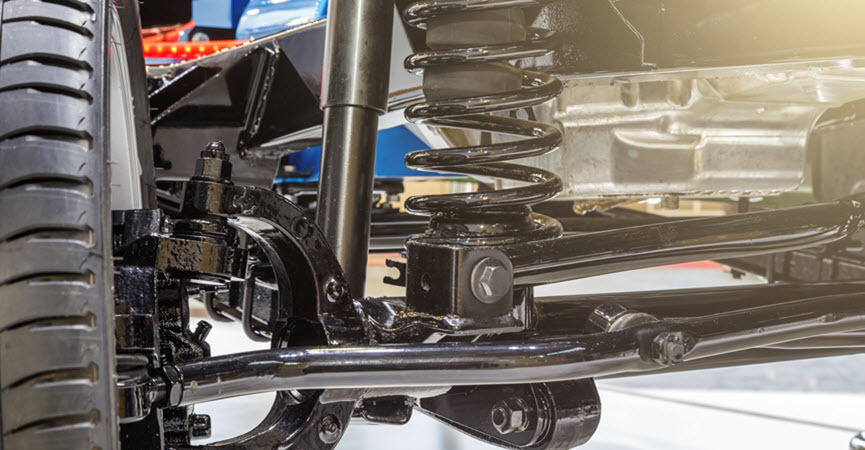
by Chris Limantour | Dec 8, 2023 | Mercedes Repair
Are you a proud owner of a Mercedes-Benz, and you’ve noticed an unsettling rattling sound coming from the rear suspension? You’re not alone. Mercedes rear suspension rattling is a common issue that can be caused by various factors. We’ll explore the key reasons behind this annoying noise and provide insights into how you can address it.
Understanding Mercedes Rear Suspension Rattling
Your Mercedes-Benz is known for its luxury and performance, but even the most well-crafted vehicles can develop issues over time. One such issue is the rattling sound that emanates from the rear suspension, leaving you wondering what’s causing it.
Worn Out Shocks and Struts
One of the primary culprits behind Mercedes rear suspension rattling is worn-out shocks and struts. Shocks and struts play a critical role in maintaining ride comfort and vehicle stability. Over time, they can degrade due to normal wear and tear, causing rattling or clunking noises when driving over bumps or rough roads.
The suspension system is designed to absorb shocks and vibrations, providing a smooth and comfortable ride. However, when the shocks and struts lose their effectiveness, the rear suspension can become less stable, leading to rattling sounds. This issue is often more noticeable when you’re driving at lower speeds or encountering uneven terrain.
Loose or Damaged Suspension Components
Another common cause of rear suspension rattling in Mercedes-Benz vehicles is loose or damaged suspension components. These components, including control arms, bushings, and sway bar links, play a crucial role in maintaining the suspension’s integrity.
When these components become loose or damaged, they can produce irritating rattling or clunking sounds when the vehicle is in motion. Factors such as exposure to harsh weather conditions, road debris, or general wear and tear can contribute to the degradation of these vital components.
To remedy this issue, it’s important to have your suspension system thoroughly inspected by a qualified technician. Loose or damaged components should be replaced promptly to ensure the smooth and safe operation of your vehicle.
Exhaust System Contact
In some cases, Mercedes rear suspension rattling may be attributed to contact between the exhaust system and the suspension components. The exhaust system is a complex network of pipes and components that can sometimes come into contact with the rear suspension due to various factors like misaligned exhaust hangers, loose mounts, or corrosion.
When the exhaust system rubs against the suspension components, it can create an unmistakable rattling sound. This issue often becomes more noticeable during acceleration, deceleration, or when driving over uneven terrain.
A professional inspection of your vehicle by experts like JCL Automotive can help identify the source of the contact and provide a suitable solution, which may involve adjusting the exhaust system or replacing damaged hangers and mounts.
Uneven Tire Wear
Believe it or not, uneven tire wear can also contribute to rear suspension rattling in your Mercedes. When tires wear unevenly, it can affect the balance and alignment of your vehicle, resulting in vibrations and rattling sounds.
To prevent or address this issue, regular tire maintenance and rotations are crucial. Ensuring your tires are properly balanced and aligned can go a long way toward reducing rear suspension noise and enhancing your driving experience.
JCL Automotive – Your Solution to Mercedes Rear Suspension Rattling
When it comes to solving the mysteries of your Mercedes-Benz’s rear suspension rattling, you need a team of experts who understand these iconic vehicles inside and out. That’s where JCL Automotive comes in.
Located in Hellertown, PA, JCL Automotive is a trusted name in the automotive industry, known for our expertise in servicing and repairing luxury vehicles like Mercedes-Benz. With our team of experienced technicians, state-of-the-art equipment, and a commitment to excellence, JCL Automotive is the go-to destination for addressing your Mercedes rear suspension issues.
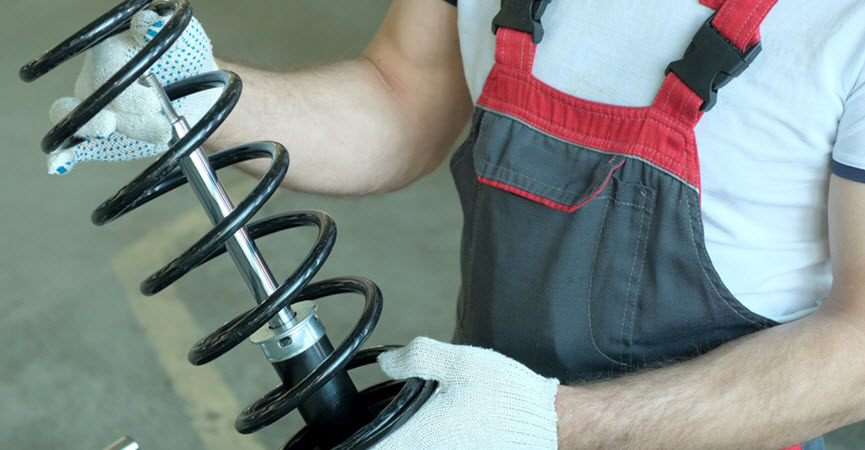
Whether it’s worn-out shocks and struts, loose suspension components, exhaust system contact, or uneven tire wear, we have the knowledge and tools to diagnose and repair the root causes of the rattling noise. With our meticulous attention to detail, you can trust us to restore your Mercedes-Benz to its optimal condition, ensuring a smooth and quiet ride.
Don’t let rear suspension rattling spoil your Mercedes-Benz driving experience. Contact us today to schedule an appointment and let our experts take care of your vehicle. Say goodbye to that pesky rattling sound and hello to a rejuvenated Mercedes-Benz. Your luxury ride deserves nothing less!
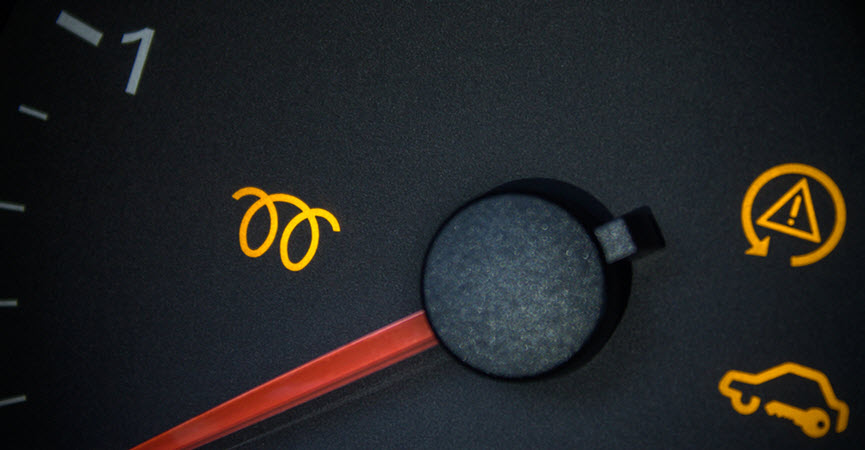
by Chris Limantour | Nov 4, 2023 | Mercedes Repair
As a Mercedes driver, it’s challenging to be well-versed in every component of your diesel engine, but having knowledge of common part failures specific to your make and model is invaluable. One such critical element is the glow plug timer relay, a component that, when functioning correctly, helps to start your engine.
The glow plug timer relay is a small and important component in your Mercedes. Its primary function is to control the duration and timing of the glow plugs’ operation. Glow plugs are vital in diesel engines, especially during cold starts. When you insert the key into the ignition and turn it, the relay springs into action, sending power to the glow plugs. These plugs, in turn, heat up the air in the engine cylinders for a specified duration. This preheating process is essential for facilitating combustion, particularly in colder temperatures.
Once the engine reaches an optimal temperature, the glow plug timer relay performs another crucial task—it shuts off power to the glow plugs. This intelligent operation ensures that the plugs don’t continue drawing power unnecessarily, optimizing energy efficiency and preventing potential issues.
Watch for These Signs of Glow Plug Relay Failure
Difficulty Starting the Engine
One of the primary indicators of a malfunctioning glow plug relay is difficulty starting the engine, especially in colder weather. If your Mercedes takes longer than usual to start or requires multiple attempts, it could be a sign that the timer relay is failing. This struggle to start is often a result of inadequate preheating, which is the relay’s responsibility.
Dashboard Warning Lights
Most Mercedes models come equipped with advanced diagnostics that constantly monitor various systems in the car. Keep an eye on the dashboard for warning lights, such as the malfunction indicator light (MIL) or a dedicated glow plug indicator. The illumination of these lights could be a signal that the glow plug system, including the timer relay, requires attention.
Rough Engine Idle
A failing relay can lead to a rough or inconsistent engine idle. If you notice vibrations or unusual noises while your Mercedes is idling, it might be indicative of a malfunctioning timer relay. The irregular operation can disrupt the engine’s smooth idle, signaling a need for inspection and potential replacement.
The Steps to Identify Glow Plug Relay Failure
Diagnostic Scanning
Employing a diagnostic scanner compatible with your Mercedes model is a proactive step in uncovering potential issues. This scanner accesses the vehicle’s computer system, retrieving stored error codes that could indicate problems within the glow plug system. Specific fault codes related to the glow plug relay can offer precise insights into the issue.
Visual Inspection
A hands-on approach involves visually inspecting the physical condition of the glow plug timer. This inspection entails looking for visible signs of wear, corrosion, damaged wires, or loose connections. Often, a quick visual assessment can reveal evident issues that demand immediate attention, allowing for early intervention.
Testing the Relay
For those comfortable with technical procedures, testing the relay can provide confirmation of its functionality. Using a multimeter, one can measure continuity and ensure proper voltage flow through the relay. Mercedes service manuals often furnish detailed instructions for testing specific components, offering guidance for accurate assessment.
Professional Assessment
When uncertainty looms, or technical expertise is lacking, seeking assistance from a certified Mercedes mechanic or technician is the wisest approach. These professionals possess specialized tools and extensive knowledge to diagnose complex issues accurately. Their expertise ensures a thorough assessment, facilitating precise identification of the problem. The glow plug relay is a sensitive component, so we do not recommend any DIY attempts to diagnose or fix the issue.
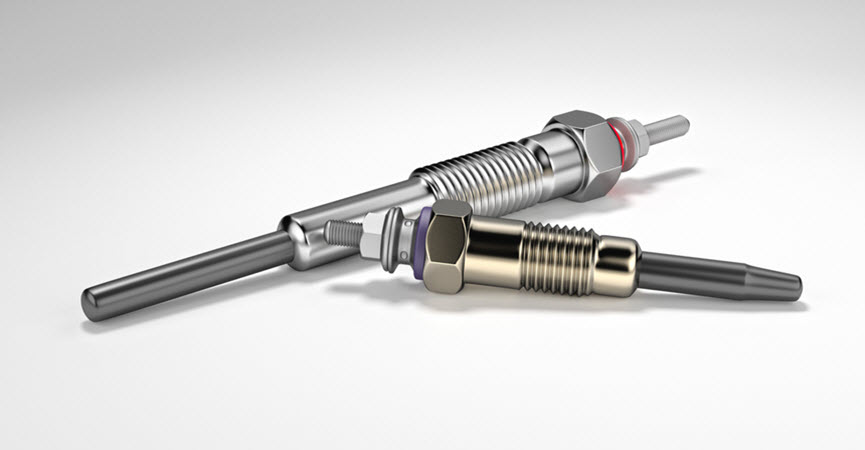
JCL Automotive: Your Gateway to Seamless Mercedes Performance
At JCL Automotive, we’ve been the trusted haven for Mercedes drivers in and around Hellertown, PA, since 2005. Our commitment to excellence is matched only by our passion for delivering top-notch services to keep your Mercedes performing at its peak. Armed with the latest factory-grade tools and unrivaled expertise, our team is primed to tackle glow plug relay failures head-on. We understand the frustration of a hiccup in your Mercedes’ performance, which is why we guarantee swift, reliable, and same-day services whenever possible. Your time matters, and we can ensure a seamless experience so you can get back on the road swiftly and confidently. Book an appointment today.

by Chris Limantour | Aug 28, 2023 | Mercedes Repair
The Mercedes-Benz V12 engine is a marvel of engineering, offering unmatched smoothness and impressive power. Historically, these engines have been the heart of Mercedes’ most luxurious and performance-oriented vehicles. However, like any intricate piece of machinery, they are not without their issues. While many owners experience years of trouble-free driving, some common problems have surfaced over the years.
Common Mercedes V12 Engine Problems
Here’s a list of the most prevalent Mercedes V12 engine problems:
- Oil Leaks: One of the most common problems with Mercedes V12 engines is oil leaks. These can stem from various places such as valve cover gaskets, timing cover gaskets, and even the rear main seal. Not only can these leaks lead to costly repairs, but they can also create a fire hazard if the oil comes into contact with hot engine parts.
- Coil Pack Failures: The ignition coil packs in the V12 engines can be prone to failure. When this happens, the engine may misfire, resulting in reduced power and efficiency. The coil pack replacements can be expensive, especially since it’s advisable to replace them in pairs or as a complete set.
- Faulty Mass Air Flow Sensors (MAF): The MAF sensors can occasionally become dirty or fail. When this happens, the engine may experience rough idling, stalling, and reduced fuel efficiency. Cleaning or replacing the MAF sensor can rectify this issue.
- Malfunctioning ABC System: The Active Body Control (ABC) system is one of Mercedes-Benz’s signature features. However, it’s also one of the most problematic areas, especially for the V12 models. Leaks can develop in the system’s hydraulic struts, leading to decreased ride quality and an increased risk of damage to other components.
- Engine Overheating: Some owners have reported overheating issues, which can stem from various causes, including a malfunctioning water pump, faulty thermostat, or issues with the radiator. Overheating can lead to severe engine damage if not addressed promptly.
- Turbocharger Issues: For the bi-turbo V12 engines, there have been reports of turbocharger problems. These can range from leaks in the turbo seals to complete turbo failures, which can be an expensive repair.
- Fuel Injector Problems: Issues with the fuel injectors can lead to a range of symptoms, including rough idling, reduced power, poor fuel economy, and even engine misfires. It’s crucial to address injector problems promptly to avoid more severe engine damage.
- Weak Motor Mounts: The immense power and torque of the V12 engine can lead to wear and tear on the motor mounts. When these mounts weaken or fail, vibrations can be felt inside the vehicle, and there’s an increased risk of other parts becoming misaligned or damaged.
- Faulty Throttle Actuators: The throttle actuator is responsible for controlling the throttle body, and a malfunctioning one can lead to reduced engine responsiveness. Symptoms can include a lag in acceleration or the engine going into ‘limp mode,’ limiting the vehicle’s speed.
- Issues with the Timing Chain and Guides: While not as common as other problems, there have been reports of the timing chain and its guides wearing out prematurely. This can lead to significant engine damage, especially if the chain snaps while the engine is running.
Enjoy Your Mercedes While Minimizing Unexpected Repair Costs
Despite these problems, it’s essential to note that many Mercedes V12 owners have had years of trouble-free driving. Regular maintenance and early problem detection are key to prolonging the life of any engine. If you’re considering buying a Mercedes with a V12 engine, it would be wise to have the vehicle thoroughly inspected by one of our mechanics familiar with these engines. Additionally, always ensure that maintenance records are up-to-date and that the vehicle has been serviced at the recommended intervals.
While the Mercedes V12 engine is a masterpiece in design and performance, awareness of potential issues will ensure that owners can enjoy their vehicles while minimizing unexpected repair costs.
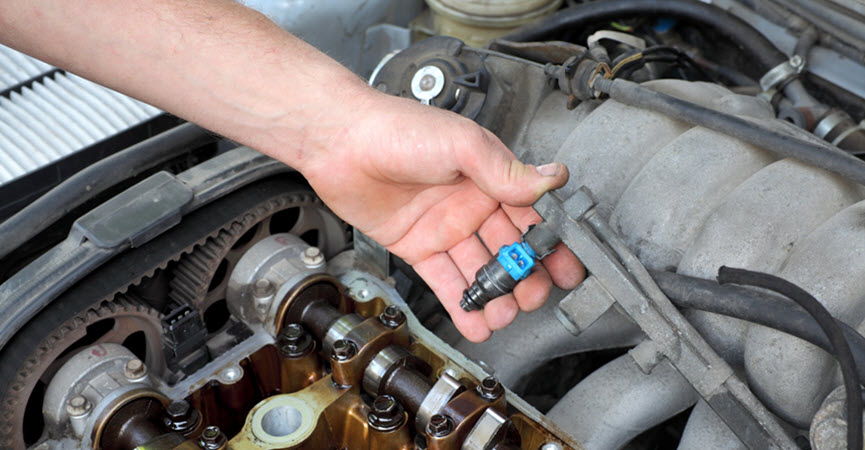
Book An Appointment With JCL Automotive Today
Booking an appointment with JCL Automotive in Hellertown, PA is a straightforward solution for anyone experiencing problems with their Mercedes V12 engine. As specialists in high-end automotive repair, our experienced technicians at JCL Automotive are equipped with the tools and knowledge to diagnose and fix any issues related to this complex engine.
Whether it’s a routine maintenance check or a more critical repair, we prioritize customer satisfaction and quality service. If you’re facing issues with your Mercedes V12 engine, don’t hesitate to contact JCL Automotive. Our state-of-the-art facility in Hellertown is ready to assist you, ensuring that your vehicle is returned to its optimal performance.
* Mercedes-Benz AMG Car image credit goes to: Artistic Operations.

by Chris Limantour | Jul 8, 2023 | Mercedes Repair
An essential part of a Mercedes engine, the crankshaft position sensor keeps track of the crankshaft’s location and rotational speed. The Engine Control Unit (ECU) needs this data to precisely calculate the timing of the ignition and the fuel injection. Engine failure and other performance problems can result from a crankshaft position sensor issue.
Symptoms of a Malfunctioning Crankshaft Position Sensor
- Engine Misfires: Incorrect spark plug firing brought on by a broken crankshaft position sensor might result in engine misfires. As a result, there can be a rough idle, power loss, and poor acceleration.
- Difficulty Starting the Engine: Starting the engine can be difficult if the crankshaft position sensor is malfunctioning. Before the engine eventually turns on, you might have to crank it for a while or make several efforts.
- Abrupt Stalling and Total Shutdowns: If the crankshaft position sensor malfunctions while the engine is running, it may result in a total shutdown or abrupt stalling of the engine. Being in this situation might be risky, especially if you’re driving.
- Unpredictable Tachometer Reading: When the crankshaft position sensor is malfunctioning, the tachometer, which shows the engine’s RPM (Revolutions Per Minute), may exhibit unpredictable or fluctuating readings.
- Engine Warning Light: The check engine light on the dashboard is frequently triggered by a broken crankshaft position sensor. To find the precise error codes associated with the sensor, the diagnostic system of the car must be scanned.
Understanding the Reasons Behind a Malfunctioning Crankshaft Position Sensor
- Electrical Problems: The crankshaft position sensor sends signals to the ECU via electrical connections. Corrosion, loose or damaged wiring, or bad electrical connections can all affect how well the sensor works.
- Sensor Damage: Over time, heat exposure, oil leaks, or debris may cause the crankshaft position sensor to become damaged. Inaccurate readings or complete sensor failure may result from this.
- Sensor Alignment: The crankshaft position sensor may malfunction as a result of improper installation or misalignment during repairs or maintenance.
Precautions to Prevent Crankshaft Position Sensor Problems
- Consistent Maintenance: By following the manufacturer’s suggested maintenance schedule, you can make sure that the crankshaft position sensor and other engine parts are checked and serviced at the right times.
- Fixing Oil Leaks: The crankshaft position sensor might be harmed by oil leaks. Any oil leaks must be fixed right away in order to keep oil from getting on the sensor.
- Safeguarding Electrical Connections: Maintaining clean, safe electrical connections lowers the possibility of faulty connections or corrosion. To keep the connections’ integrity, examine and clean them frequently.
The Value of Prompt Repairs
Your Mercedes may suffer serious effects from a malfunctioning crankshaft position sensor. The consequences of ignoring the issue and delaying resolution include improper fuel injection and ignition timing brought on by a defective sensor might eventually result in engine damage. This may necessitate expensive repairs or perhaps the replacement of the engine.
A damaged sensor might interfere with the engine’s combustion process, reducing fuel efficiency. This can lead to higher gasoline usage and higher gas station costs. Also, sudden engine shutdowns or stalling while driving provide serious safety dangers. To prevent such accidents, it is crucial to make sure that the crankshaft position sensor is operating correctly.
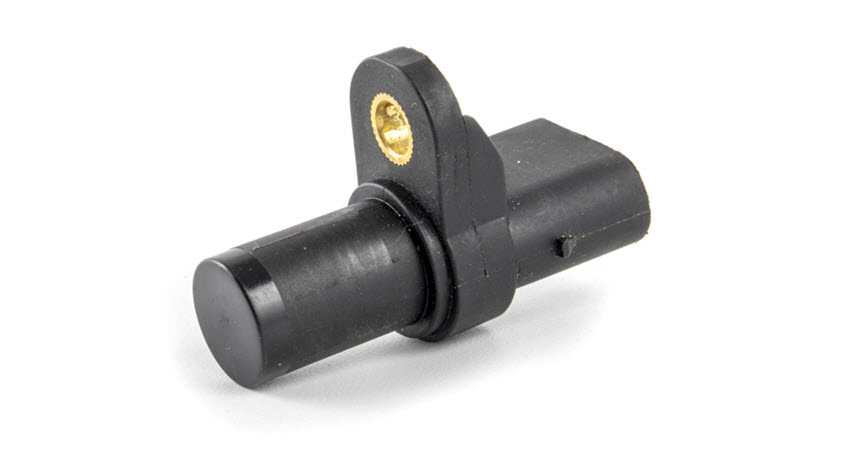
How Our Mechanics Will Resolve Your Mercedes Problems
If you believe your crankshaft position sensor may be malfunctioning, our mechanics are the right call. With years of experience working on Mercedes automobiles, our knowledgeable experts have the skills and diagnostic equipment required to correctly identify and fix crankshaft position sensor problems. To find any issues and carry out the required fixes or replacements, we will carefully examine the sensor, its electrical connections, and related components. Our mechanics will consult with you and be totally transparent on their findings, allowing you to direct the repairs and replacements within your budget.
For a Mercedes engine to run smoothly, the crankshaft position sensor is essential. You may quickly identify and fix the problem by being aware of the warning signals of a defective sensor, comprehending the typical causes, and taking preventative steps. Not only do prompt repairs and maintenance prevent future damage, but they also guarantee excellent engine reliability and performance.
Contact our qualified mechanics at JCL Automotive in Hellertown, PA to diagnose and fix any crankshaft position sensor problems you may be experiencing in your Mercedes. This will ensure both the performance of your car and your safety while driving.

by Chris Limantour | Jun 21, 2023 | Mercedes Repair
When it comes to luxury automobiles, Mercedes-Benz is a brand that stands out for its sleek design, advanced features, and superior performance. However, even the finest of vehicles can encounter mechanical problems from time to time. One common issue that Mercedes owners may face is gear selector problems.
The gear selector is responsible for engaging the appropriate gear in your vehicle, and any malfunction can be frustrating and potentially dangerous. Let’s explore some practical steps to help you deal with Mercedes gear selector issues effectively.
Understanding the Common Symptoms
Before delving into the solutions, it is crucial to identify the signs that indicate a gear selector issue in your Mercedes. Some common symptoms include:
- Gear shifting problems: You may experience difficulty shifting gears, such as the gear selector being stuck or not engaging properly. This can lead to delays in acceleration or even a complete inability to change gears.
- Incorrect gear indication: Your gear indicator may display an incorrect gear, such as showing ‘D’ when the car is in ‘P’ or ‘R’ when it is in ‘D.’ This can cause confusion and potentially result in accidents if you rely solely on the indicator.
- Gear selector lever feels loose: If the gear selector lever feels loose or wobbly, it could indicate a problem with the gear selector mechanism. This may require immediate attention to avoid any unforeseen issues.
Check for Mechanical Obstructions
One of the primary reasons for gear selector issues in Mercedes-Benz vehicles is mechanical obstruction. Over time, debris, dirt, or foreign objects can accumulate around the gear selector mechanism, interfering with its smooth operation. To address this, follow these steps:
- Park the vehicle on a flat surface and engage the parking brake.
- Carefully inspect the area around the gear selector lever for any visible obstructions. Use a flashlight if needed.
- If you notice any debris or foreign objects, gently remove them using a soft brush or compressed air. Avoid using excessive force or sharp objects that may damage the mechanism.
Check the Gear Selector Linkage
The gear selector linkage connects the gear selector lever to the transmission, enabling the transmission to shift gears. A worn or damaged linkage can lead to gear selector issues in your Mercedes. Here’s how you can inspect and address this problem:
- Locate the gear selector linkage under the vehicle. Consult your owner’s manual or online resources for specific instructions on the exact location.
- Examine the linkage for any signs of wear, such as rust, loose bolts, or broken components. If you notice any damage, it is advisable to consult a professional mechanic for repair or replacement.
- If the linkage appears intact, you can try lubricating the joints and moving parts with a suitable lubricant. This may help restore smooth operation and alleviate gear selector problems caused by friction.
Seek Professional Assistance
If you have tried the above steps and the gear selector issues persist, you should seek assistance from a certified Mercedes-Benz technician. They have the expertise and specialized diagnostic tools to identify and resolve complex gear selector problems accurately. Additionally, they can ensure that any repairs or replacements are performed using genuine Mercedes parts, maintaining the integrity and performance of your vehicle.
Dealing with gear selector issues in your Mercedes-Benz requires a systematic approach and attention to detail. By understanding the symptoms and seeking professional assistance when necessary, you can effectively address these problems and ensure a smooth driving experience in your luxury vehicle.
Remember, regular maintenance and servicing are crucial to preventing gear selector issues and maintaining the optimal performance of your Mercedes-Benz for years to come.

JCL Automotive: Your European Auto Specialists in Hellertown
At JCL Automotive, we prioritize quality above all else when it comes to your vehicle. We firmly believe in never compromising on the standards of our work, so you can trust us to provide exceptional service. Our shop is fully equipped with state-of-the-art tools and equipment, ensuring that we meet the highest industry standards.
We understand the value of convenience, which is why we offer after-hours drop-off and pick-up options for you. Additionally, whenever possible, we strive to provide same-day services to minimize any inconvenience caused by vehicle repairs or maintenance.
Please visit our shop located at 70 Main St. Hellertown, PA 18055, or simply give us a call at 484-851-3390 to schedule your appointment with our team of experts.

by Chris Limantour | Apr 14, 2023 | Mercedes Repair
Mercedes-Benz is a luxury car brand known for its high-performance vehicles, cutting-edge technology, and exceptional driving experience. However, like any machine, Mercedes-Benz cars are prone to mechanical problems, and one common issue that owners face is a differential failure.
The differential is a critical component in the drivetrain of any car, and it is responsible for distributing power evenly to the wheels. The differential also allows the wheels to rotate at different speeds when turning, which is necessary for smooth and stable handling. When the differential fails, it can cause a range of problems, from reduced performance to complete loss of power.
1. Whining or Grinding Noise
One of the most common signs of differential failure is a whining or grinding noise coming from the rear of the car. This noise can be caused by worn or damaged gears, bearings, or seals in the differential. If you hear this noise, it is important to have your car inspected by one of our qualified mechanics to determine the cause and prevent further damage.
2. Vibration or Shuddering
Another sign of differential failure is a vibration or shuddering sensation when driving at higher speeds. This can be caused by an unbalanced or damaged driveshaft or worn universal joints. If left unchecked, this can lead to further damage to the differential and other drivetrain components.
3. Reduced Performance
Differential failure can also cause a reduction in performance, including slower acceleration and decreased top speed. This is because the differential is responsible for transferring power from the engine to the wheels, and any damage to the differential can result in a loss of power.
4. Difficulty Turning
If you have difficulty turning your car, especially at low speeds, it may be a sign of differential failure. The differential allows the wheels to rotate at different speeds when turning, and any damage to the differential can cause the wheels to lock up, making it difficult to turn.
5. Fluid Leaks
Differential failure can also cause fluid leaks, which can lead to further damage to the differential and other drivetrain components. If you notice fluid leaking from the rear of your car, it is important to have it inspected by our qualified mechanics as soon as possible.
Preventing Differential Failure in Mercedes-Benz Cars
While differential failure is a common problem in Mercedes-Benz cars, there are several steps you can take to prevent it from happening.
1. Regular Maintenance
Regular maintenance is essential for preventing differential failure in Mercedes-Benz cars. This includes changing the differential fluid, inspecting and replacing worn components, and ensuring that the differential is properly lubricated.
2. Driving Habits
Your driving habits can also have a significant impact on the lifespan of your differential. Avoid aggressive driving, such as rapid acceleration or hard braking, as this can put undue stress on the differential and other drivetrain components.
3. Proper Towing
If you plan on towing a trailer or other heavy load with your Mercedes-Benz car, it is important to use the proper equipment and techniques. Overloading the car or towing in the wrong gear can cause significant damage to the differential and other drivetrain components.
4. Upgraded Components
If you frequently drive your Mercedes-Benz car in harsh conditions, such as off-road or in extreme temperatures, you may want to consider upgrading to stronger or more durable differential components. This can help prevent premature wear and damage to the differential.
Differential failure is a common problem in Mercedes-Benz cars, but it can be prevented with regular maintenance, proper driving habits, and upgraded components. If you notice any signs of differential failure, such as whining or grinding noise, vibration or shuddering, reduced performance, difficulty turning, or fluid leaks, it is important to have your car inspected by one of our qualified mechanics.
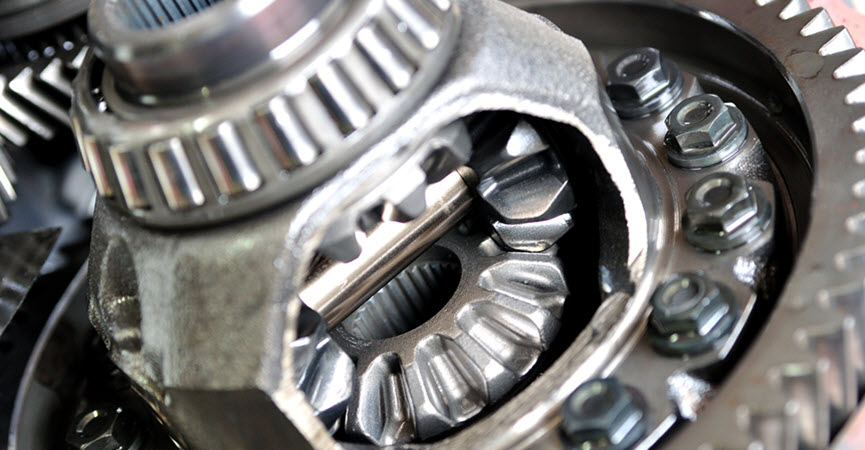
Book An Appointment With JCL Automotive Today
If you’re experiencing issues with the differential system in your Mercedes, it can be a cause for concern. But fear not, JCL Automotive in Hellertown, PA is here to help. With specialized expertise in Mercedes differential repair, our team of experienced technicians can diagnose and fix the problem with precision and care. From addressing noises and vibrations to more complex repairs, JCL Automotive has the know-how to get your Mercedes back on the road in no time.
With a commitment to quality and transparent communication, you can trust that you’re getting expert service every step of the way. So why wait? Book an appointment with JCL Automotive for Mercedes differential repair today and experience the peace of mind that comes with knowing your car is in good hands.

by Chris Limantour | Feb 6, 2023 | Mercedes Repair
Mercedes vehicles are known for their exceptional quality and advanced technology. One of the critical components that ensure proper functioning of Mercedes vehicles is the 13-pin connector. In this article, we will discuss what the 13-pin connector does, symptoms of failure, causes of failure, and when it should be replaced.
What is the 13-pin connector?
The 13-pin connector is a vital component in Mercedes vehicles that connects the transmission control module (TCM) to the engine control module (ECM). It facilitates the exchange of data between the two modules, ensuring that the transmission operates smoothly and efficiently.
Symptoms Of 13-Pin Connector Failure
The following are some of the most common symptoms of a failing 13-pin connector in a Mercedes:
- Transmission slipping: A faulty 13-pin connector can cause the transmission to slip or shift improperly, resulting in jerking or jolting movements while driving.
- Delayed or Harsh Shifting: If the transmission is taking longer than usual to shift, or shifting is more abrupt than usual, this may be an indication of a failing 13-pin connector.
- Failure to shift: If the transmission fails to shift at all, it could be a sign of a complete failure of the 13-pin connector.
- Warning lights on the dashboard: If the check engine light or transmission warning light illuminates on the dashboard, it may be a sign of a problem with the 13-pin connector.
Causes Of 13-Pin Connector Failure
Several factors can cause a 13-pin connector to fail, including:
- Age: Over time, the 13-pin connector may wear out due to exposure to heat, moisture, and other environmental factors.
- Contamination: Contaminants, such as dirt or water, can enter the connector and cause damage to the pins or the internal components.
- Electrical Problems: Voltage spikes or other electrical problems can cause damage to the 13-pin connector.
- Poor Maintenance: Inadequate maintenance, such as infrequent transmission fluid changes, can cause damage to the 13-pin connector.
13-Pin Connector Maintenance
Proper maintenance of the 13-pin connector in a Mercedes is essential to ensure its optimal performance and prevent premature failure. Here are some recommended maintenance practices for the 13-pin connector:
- Regular Inspection: It is recommended to inspect the 13-pin connector during routine maintenance services, such as oil changes. A mechanic should inspect the connector for any signs of damage, such as corrosion, bent pins, or loose connections.
- Keep the Connector Clean: The 13-pin connector is vulnerable to dirt, moisture, and other contaminants that can cause damage. To prevent contamination, keep the connector clean and dry. Use a soft-bristled brush and compressed air to remove any dirt or debris from the connector.
- Use Quality Transmission Fluid: The use of quality transmission fluid can help prolong the life of the 13-pin connector. Mercedes recommends using its own branded transmission fluid, which is specifically designed for use in their vehicles.
- Change Transmission Fluid Regularly: Regular transmission fluid changes are essential for maintaining the health of the 13-pin connector. Mercedes recommends changing the transmission fluid every 40,000 miles or every four years, whichever comes first.
- Replace the Connector at Recommended Intervals: Mercedes recommends replacing the 13-pin connector every 100,000 miles or every ten years, whichever comes first. However, if you frequently drive in severe conditions, such as stop-and-go traffic or towing heavy loads, you may need to replace the connector more frequently.
When To Replace The 13-Pin Connector
It is crucial to replace the 13-pin connector as soon as you notice any symptoms of failure to prevent damage to the transmission. If your Mercedes is experiencing transmission slipping, delayed or harsh shifting, or failure to shift, it’s time to have the 13-pin connector checked and replaced if necessary.
Mercedes also recommends replacing the 13-pin connector every 100,000 miles or every ten years, whichever comes first. However, if you frequently drive in severe conditions, such as stop-and-go traffic or towing heavy loads, you may need to replace the 13-pin connector more frequently.
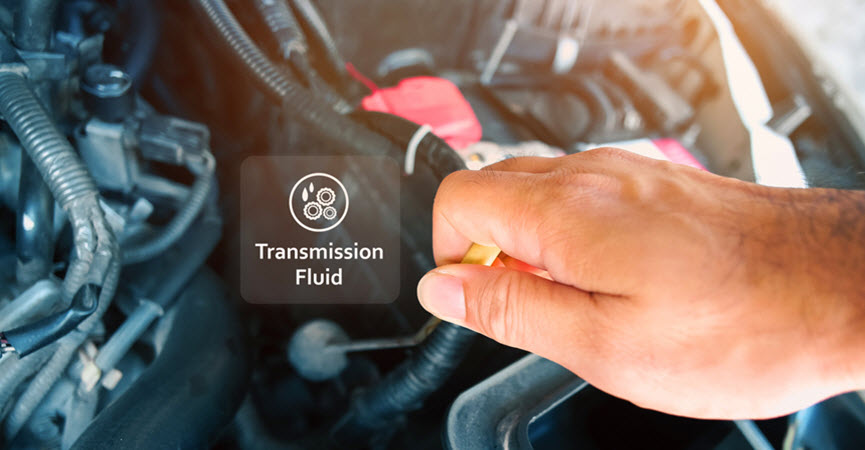
JCL Automotive Can Help
Experiencing problems with your Mercedes’ 13 pin connector? Then let the experts at JCL Automotive handle it. With our diagnostic and repair service, you can rest assured that your car is in good hands. Our highly skilled team of technicians are well-equipped to diagnose and repair any issue, saving you time and money. And if you’re lucky enough to live in or near Hellertown, PA, you’re only a few steps away from professional car care. Stop by or call us today for further information on our services – one visit could be all it takes to get your vehicle back in top condition!

by Chris Limantour | Jan 20, 2023 | Mercedes Repair
Maintaining regular oil levels in your car is integral for its optimal performance. Mercedes vehicles are no exception. If you notice the engine light turning on and off suddenly, it could be a sign of an oil pressure switch failure. This article will explain how to deal with an oil pressure switch failure in a Mercedes vehicle and what preventive steps can be taken to avoid such a failure in the future.
What Is The Oil Pressure Switch?
The oil pressure switch serves an important function in any engine. It helps monitor oil flow and alert the driver when the level of oil has fallen below acceptable levels. In a Mercedes vehicle, this switch is located near the base of the distributor on the left side of the engine block. When this switch fails, it will cause your car’s engine light to turn on and off intermittently, which can indicate a problem with the car’s oil flow or level.
Diagnosing The Issue
In order to diagnose and determine whether there is indeed an issue with your oil pressure switch, it is recommended that you get one of our certified mechanics to carry out a thorough examination of your car’s system.
We will first check for any leaks or signs of wear around the area where the oil pressure switch is located. If there are obvious signs of damage or deterioration, then further investigation may be necessary. Additionally, we will examine other components connected to the oil pressure switch, such as hoses and wiring connections that might have caused friction, leading to its malfunctioning.
Replacing If Necessary
If we determine that it is indeed an issue with the oil pressure switch itself, then replacing it should become your priority. You would want to do this as soon as possible, so as not to incur further damage to other parts of your car’s system. This damage could be due to insufficient lubrication levels caused by low oil flow or levels.
It is recommended that you take your car into one of our certified mechanics who can replace this part quickly and efficiently. We will ensure that all safety measures are taken into account during installation so as not to negatively affect other parts while replacing this component.
Preventative Measures
Now that we know how to deal with an issue concerning an oil pressure switch failure in a Mercedes vehicle, let us look at some preventive measures which can help avoid such failures from occurring in the first place:
- Ensure regularly scheduled maintenance: For starters, make sure you take your vehicle for regular servicing intervals as recommended by Mercedes so that any potential problems can be identified before they become critical failures down the line. During such services, also make sure that mechanics inspect all crucial components like hoses and wiring connections near where this particular switch is located so any early issues can be tackled immediately before they develop into larger problems like complete breakdowns or malfunctions.
- Keep track of warning messages: Additionally, keep watch for error codes or diagnostic messages coming from your car’s computer system regarding issues related to this component so these warnings don’t get ignored until eventually reaching an emergency situation due to neglecting preventative care over time.
Ultimately, following these preventive measures will help keep your Mercedes vehicle running smoothly, thereby saving you time, money, and hassle over long periods.
By understanding how to deal with an issue concerning an oil pressure switch failure in Mercedes vehicles and what preventive steps one can take, drivers can stay alert to any potential signs of deterioration before they reach critical points which require immediate attention by professional service technicians.

Book An Appointment With JCL Automotive Today
If your Mercedes has encountered an issue with its oil pressure switch, it may be time to consult a professional. JCL Automotive, located in Hellertown, PA, can help you tackle this problem quickly and easily. Don’t put off getting the solutions you need for any of your automotive needs — book an appointment today and get the reliable service and top-notch work that JCL Automotive is known for. Our experienced technicians will be ready to diagnose and repair your car so you can get back on the road without delay.
* Black Mercedes-Benz Car image credit goes to: franz12.

by Chris Limantour | Jan 3, 2023 | Mercedes Repair
Mercedes-Benz is among the world’s most popular automobile brands, recognized and respected for its excellent quality, durability, and dependability. One of the components in your Mercedes is the chassis flex disc. This component must be replaced if it starts to malfunction. Here, we will take a closer look at the functions and importance of the chassis flex disc, why it has the tendency to fail, and the signs to look out for in order to recognize the issue when it arises so that you will know exactly what to do when you find yourself in that situation.
The Importance of the Chassis Flex Disk
The chassis flex disc is the rubber coupling device that is connected to the input-output shaft flanges, which are then connected to vital parts like the transmission, differential, and driveshaft. Mercedes vehicles have flex discs in both the rear and the front. With a keen eye, you can locate the front disc, which connects the transmission or gearbox to the driveshaft. The differential is connected to the disc at the back, and it is very easy to locate.
The function of the flex disc is very straightforward. It helps absorb excessive torque that is supplied to the shaft at acceleration and deceleration. It also prevents transmission vibrations from reaching the driveshaft. Due to the reinforced rubber construction and simplicity of the flex discs, they have a longer life span of approximately 200,000 miles.
Typical Reasons for a Chassis Flex Disk Failure
Since rubber flex discs are being used on the chassis, the rubber is regularly exposed to extremely high temperatures, which causes it to expand. The contraction and expansion of the material cause a premature crack and wear on the disc.
Extreme use of the suspension parts on a rough and rocky road is also highly strenuous on the disc. There is a tendency to shorten the lifespan of your flex discs if you drive on very rough terrains.
Signs of Damaged of Failing Chassis Flex Discs
If the flex discs in your car are damaged, you will begin to experience certain symptoms, and driving your vehicle after an indication of a failing chassis flex disc can cause more damage to your Mercedes. We advise that you get your vehicles inspected by our professionals as soon as you recognize any of the symptoms below:
- Gear Shifting Issues: When the chassis flex disc in a Mercedes is faulty, changing gears may become very difficult. This is a common issue when trying to switch from park to reverse or park to drive. Shifting issues might also be caused by engine problems or transmission problems.
- Excessive and Intense Vibration: When there is a flex disc failure, the driveshaft will become loosen, resulting in intense vibrations because the driveshaft begins to move around. At this point, driving becomes very uncomfortable and unpleasant.
- Chassis Flex Disk Wear: A full examination of your chassis flex disks may occasionally reveal visible flaws. The disks may be deformed, damaged, or separated from their elements.
- Knocking Noises: If you happen to experience a knocking noise beneath your Mercedes whenever you accelerate, it could be as a result of a failing or damaged chassis flex disc.
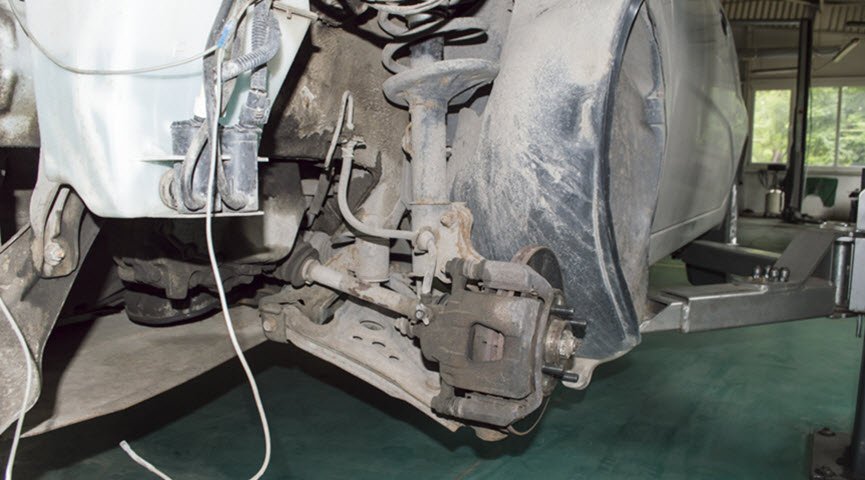
JCL Automotive Will Fix Any Flex Disc Issues in Your Mercedes
If you are experiencing any problems with your Mercedes, you need to have it checked out as quickly as possible. Driving your Mercedes with a flex disc problem cause significant damage as well as unnecessary expenses to fix any issues that could’ve been prevented with maintenance and inspections.
At JCL Automotive, we take pride in providing our clients with the most prompt and high-quality services in the Hellertown area. Our mechanics are ASE certified with years of experience in fixing Mercedes models. We are always excited to serve the residents in Hellertown, PA, and we have become very well known for always giving our best service. Check out our reviews and see what our happy customers are saying about our service. Call us today if you are experiencing any issues with your Mercedes, or you can visit our shop to talk with our friendly mechanics. We look forward to earning your business.
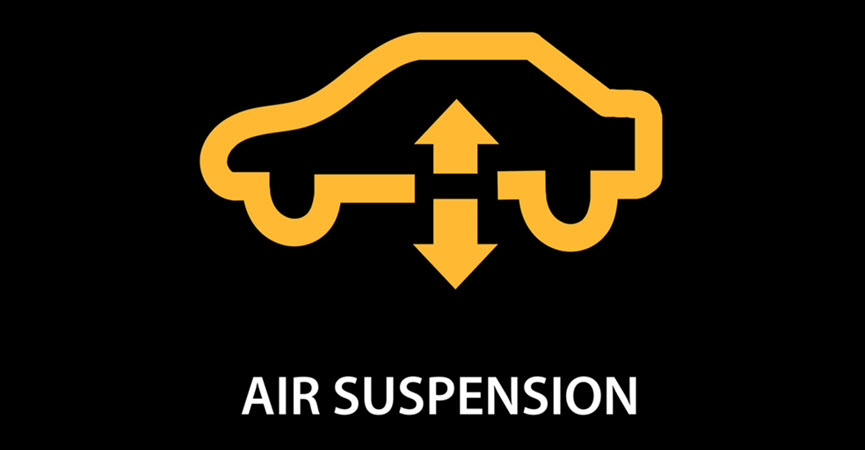
by Chris Limantour | Sep 6, 2022 | Mercedes Repair
The air suspension system in a Mercedes is responsible for providing a comfortable ride by cushioning the effects of bumps and potholes. However, the system can fail if there is a leak in the airbags or a problem with the compressor. When this happens, the air suspension system will need to be repaired or replaced. Depending on the severity of the problem, this can be a costly repair. This is why it is important to have the air suspension system inspected regularly to avoid any costly repairs. Let’s look closer at this issue.
Leaks, Broken Sensors and Failing Parts
There are four primary causes of air suspension failure: leaks, sensor problems, electrical issues, and compressors.
Leaks are perhaps the most common cause of air suspension failure. Over time, air compressor seals can degrade, causing air to leak from the system. This can lead to a loss of pressure, which in turn can cause the air springs to collapse.
Sensor problems can also cause air suspension failure. Air suspensions use sensors to monitor air pressure and adjust the system accordingly. If a sensor fails, it can cause air accumulations or air leakage, resulting in a loss of pressure and air spring collapse.
Electrical issues can also lead to air suspension problems in your Mercedes model. If there is an electrical problem with the air compressor or other components, it can prevent the air suspension from functioning properly.
Finally, compressors can also fail, causing the entire system to lose pressure and collapse.
While air suspension failure can be caused by a number of factors, if you suspect that your air suspension has failed, it is important to have it inspected by a qualified Mercedes mechanic as soon as possible.
Watch for These Warning Signs
There are several signs that air suspension failure may be imminent in a Mercedes. First, the ride may become noticeably rougher, as the air shocks can no longer cushion the bumps in the road.
Next, your car may begin to sag in one or more corners, as air leaks out of the suspension system. Your Mercedes car may also make strange noises when driving over bumps, as air escapes from the shocks.
Finally, the check engine light may come on because air pressure sensors detect a drop in air pressure.
If any of these signs are present, it is important to have the air suspension system checked by our qualified mechanics. Failure to do so could result in further damage to the suspension system, and potentially even to the frame of the car.
Expert Air Suspension Repair by JCL Automotive
Our qualified mechanics have the training and experience necessary to diagnose the problem with your Mercedes air suspension and make any necessary repairs. We will check for leaks in the air system first. If we find any, we will need to replace the affected parts. Then we will move on to check the suspension airbags for damage. If they are damaged, we will need to replace them. Last, we check the air compressor for proper operation. If it is not working properly, we may be able to repair it, but if not, we will need to replace it. Because it can be tricky to find the root cause, it’s important to bring your Mercedes to specialists who won’t misdiagnose your car’s problem.

Having your Mercedes serviced isn’t the most exciting activity you can do, but when you drive a European car, it’s important that you take the proper steps to maintain your vehicle to preserve its engine performance and keep its amenities functioning to keep you comfortable. Your safety and pleasure when driving your car is second on our goals to excellence in customer service. At JCL Automotive, we pride ourselves on making maintenance easier for drivers all throughout the Hellertown, PA area.
With a commitment to quality work and exceptional customer service, our technicians are proud to help you keep your car running at the level you depend on daily. Give us a call today or stop by our auto center to speak with one of our friendly staff about your Mercedes needs. We look forward to earning your patronage.
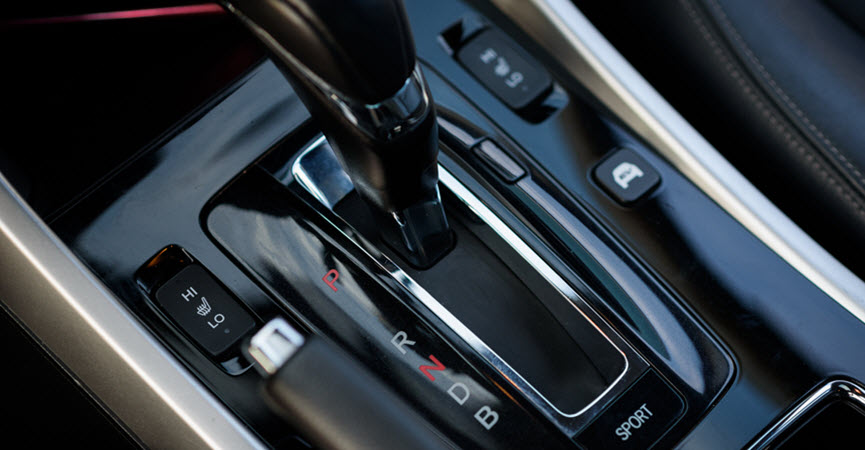
by Chris Limantour | Aug 4, 2022 | Mercedes Repair
Mercedes is well-known throughout the world for its high-performance and reliable engines, which makes it more of a burden when you encounter car troubles like a gear selection failure. Transmission problems are usually a reason for concern, but gear selector failure is frequently more bothersome and costly to fix. It is critical to notice its warning signs as early as possible in order to avoid long-term complications.
In this article, you’ll find out why gear selection is important to a car’s transmission, the reasons for its failure, the warning signs, and what you should do if you’re experiencing gear selector trouble or a total failure of the gear selector.
The Role of the Gear Selector in Your Mercedes
One of the most important parts of your vehicle is the gear selector, even though it is often overlooked. It is through the gear selector that your car communicates with the transmission system. A gear selector in an automatic transmission lets the car change between different gears like drive, neutral, and reverse. (To change gears in a manual transmission, you use a gear shifter, which is different from the gear selector.)
It is critical that this transmission component functions properly, otherwise you will find yourself traveling backward when you ought to be moving forward. That might certainly pose a risk to individuals on the road, not to mention that it might have a significant influence on your transmission’s condition. This can be costly to repair.
A gear selector is a crucial component of your car, so if it has a problem, it is important to bring it to our Mercedes experts as soon as possible.
Common Reasons for Gear Selection Failures
- Normal Wear and Tear: Either an automatic or manual transmission installed in your Mercedes will begin to exhibit symptoms of wear and tear over time. With extensive usage, the gears and cables will begin to wear down. It’s critical to hold a routine maintenance schedule and to have your transmission fluid checked and refilled as needed. These maintenance procedures will assist in avoiding increased wear and tear while also allowing your Mercedes specialist to look for additional damage or possible concerns.
- Failure of the Valve Body: The valve body in your Mercedes transmission aids the flow of the transmission fluid throughout the car’s transmission system, allowing for smooth shifting between gears. The valve body can wear and tear over time, and if it gets damaged, you will sense the impact when shifting between gears in your Mercedes. If the problem is with the valve body, the component must be entirely replaced.
Warning Signs Of A Failed Gear Selector
Here are some of the most prevalent symptoms of gear selector failure:
- Gear slipping: This is a common sign of a faulty gear selector. In this case, you are not changing your speed but the transmission suddenly slips into a higher (or lower) gear despite the car being in the same gear as you were driving. Additionally, the car may suddenly shift to a lower gear while accelerating, when it should be shifting to higher gears.
- Shifting Gears Issues: When you instruct it to, your car should shift between gears promptly. On the other hand, if you observe it hesitating or if you continue to travel ahead after shifting into reverse, this is an indication that the transmission is experiencing difficulties.
How To Deal With Gear Selection Issues
Whenever a transmission issue arises, such as gear selection failure, it is crucial to resolve it as soon as possible. If you ignore the problem, you may face more costly transmission difficulties in the future or you may be stuck in Park when you need to go to work. Instead of relying on luck, allow our professionals to handle your automobile’s needs.
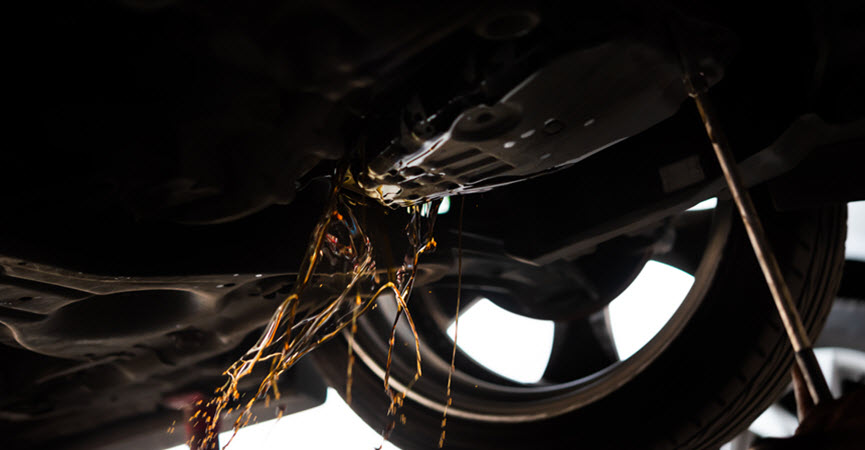
JCL Automotive: Your Mercedes Professionals in Hellertown, PA
As the leading independent automotive service provider in the region for more than 10 years, JCL Automotive has dominated the automotive market. For the best performance of your Mercedes, you can always rely on us for service. We are pleased to announce that since our recent move into the heart of Hellertown, PA, we can now provide many of the same services you have come to expect, as well as many others.
As of now, JCL Automotive offers PA state inspections and emissions certifications to our customers. We are confident that we can meet all of your Mercedes service needs with our expanded staff and capabilities. Call us today!






























